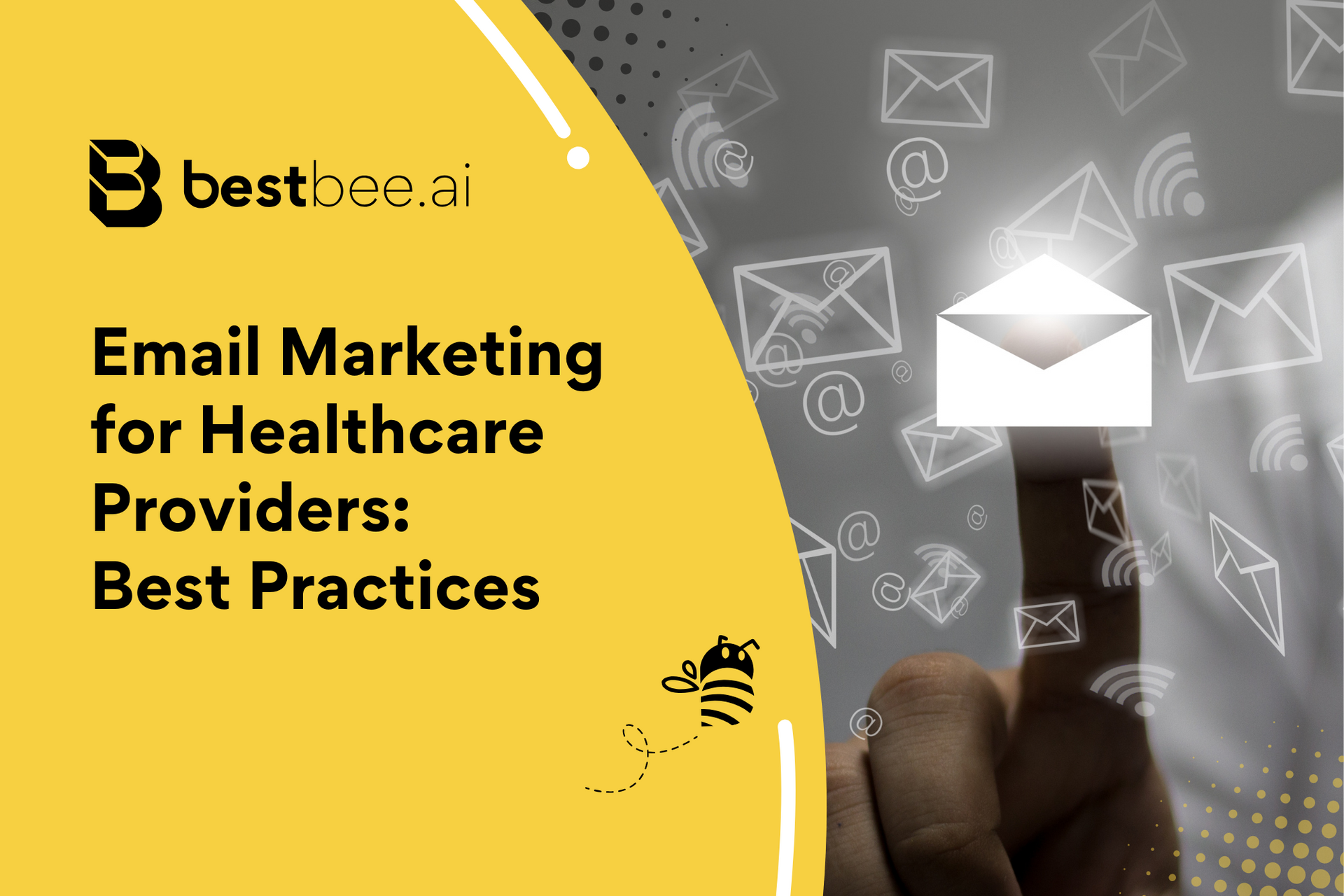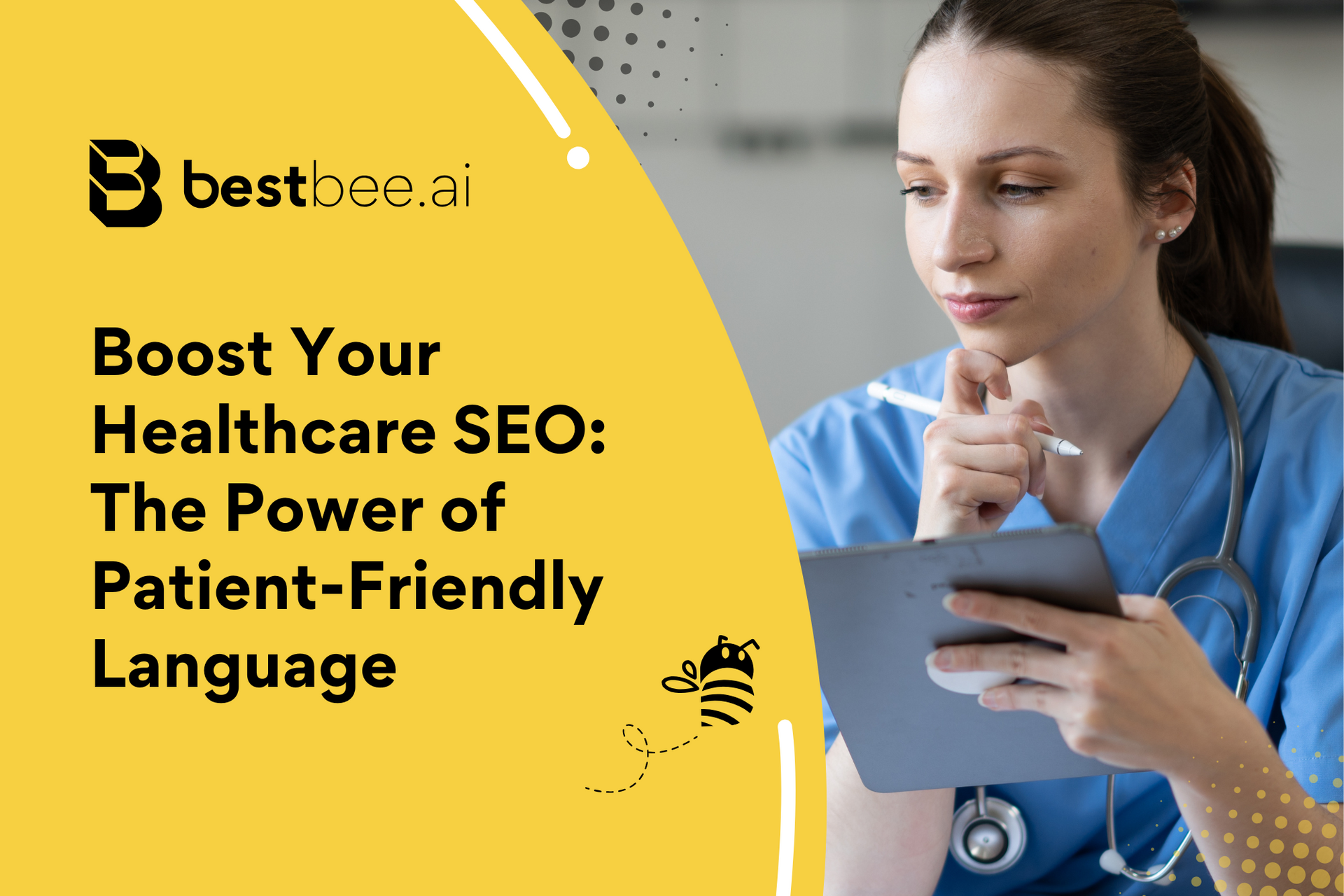Healthcare is among the largest and fastest-growing industries in the world, with a global market size valued at $21.2 trillion in 2023. On a national level, the Centers for Medicare and Medicaid Services (CMS) estimate the U.S. health expenditure to reach $6.2 trillion by 2028.
While these are massive numbers, many healthcare providers operating on a smaller scale find this growth seemingly elusive. With benefits appearing to favor larger healthcare systems and corporations, how can smaller practices thrive and succeed in such a vast and rapidly evolving market?
The answer?
Healthcare marketing.
What Is Healthcare Marketing?
And Do You Need It?
According to Abbott’s Beyond Intervention reports, patients seek more personalized healthcare experiences through individualized care and meaningful, engaging relationships with their providers.
Beyond receiving treatments, patients want to hear from, learn about, and interact with you on a more holistic level.
This is where an effective healthcare marketing strategy comes in.
Healthcare marketing
encompasses the strategies and tools healthcare organizations use to promote their brand, attract new patients, and foster patient loyalty.
With the right healthcare marketing strategies and tools, your practice can effectively reach more patients, communicate your value, and build lasting relationships.
5 Marketing Tips to Make Your Healthcare Practice Stand Out
Whether starting a new practice, expanding your current one, or anywhere in between, a well-crafted and highly strategic marketing plan is essential for driving success. Here are proven marketing tips that help you connect with patients, build trust, and improve overall patient engagement:
1. Use Data to Reach the Right Audience
According to health marketing expert Fernando Beltran, data-driven health marketing allows you to understand your target audience better and tailor your messaging to them.
It also helps you assess your current marketing efforts and identify areas you need to work on. Start gathering valuable data by asking questions like:
- Who is your target audience?
- Who is the ideal patient for your practice?
- What is the patient experience like in your practice?
- What are your patients’ triggers and pain points?
- What are your practice’s strengths, weaknesses, opportunities, and threats?
A pediatric clinic, for example, can analyze demographic data to identify the concentration of school-age children in nearby neighborhoods. If the data reveals a significant number of children in this age bracket, the practice may find that a marketing campaign promoting the importance of back-to-school check-ups and immunizations is worth investing in.
The campaign can include social media ads, email reminders, and educational blog posts aimed at parents, highlighting your clinic's expertise and convenient scheduling options.
By aligning your marketing efforts with the specific needs of your patient base, you can drive more appointments and strengthen patient trust.
2. Emphasize Patient-Centered Content Marketing
Content is king—especially in the healthcare industry.
With so much information at our fingertips, people rely on the internet for health-related knowledge and advice. This makes high-quality content a powerful tool for educating users, fostering patient trust, and establishing yourself as a trusted authority in your field.
The first step to creating patient-centered content is actively listening to your audience. Carve out time to meet with patients and understand the challenges they face. Find out what words and phraseology your patients use—especially simpler words for medical terms—and incorporate those into
healthcare content marketing channels like:
- Blog Posts
- Testimonials
- Videos
- Infographics
- Webinars
- Frequently Asked Questions (FAQ) Pages
For example, an allergy clinic publishes a blog article on how immunotherapy can effectively treat allergies. It explains what immunotherapy is, its benefits, the symptoms it can treat, the treatment process, and what patients can expect.
The practice makes sure to use relevant keywords like
allergy immunotherapy,
allergy relief, and
treatment for seasonal allergies to attract potential patients using search engines to find answers.
By providing informative, patient-centered content, the clinic positions itself as a trusted resource, encouraging readers to book an appointment for a consultation.
3. Leverage Social Media to Build Trust and Engagement
Did you know that internet users spend an average of 151 minutes on social media every day? Social media is an excellent (not to mention cost-effective!) avenue for connecting with your patient base, sharing engaging content, and creating more digital touchpoints.
Here are a few ways you can leverage the power and reach of social media:
- Target the platforms your audience uses the most. For example, younger demographics might be on Instagram or TikTok, while older audiences may prefer Facebook.
- Post informative content
such as health tips, FAQs, or service updates. This positions your practice as a trusted authority and keeps your audience engaged.
- Engage with followers.
Build relationships by acknowledging feedback, answering questions, and showing genuine care for your community.
- Celebrate patient milestones or share testimonials (with their consent, of course). These stories build credibility and emotionally connect with potential patients.
- Maintain a consistent posting schedule to stay top of mind. Use a content calendar to plan posts and maintain consistency across platforms.
4. Optimize for Local SEO to Attract Nearby Patients
Search engine optimization (SEO) drives organic traffic to a website by making it more relevant and authoritative in the eyes of search engines. Local SEO goes a step further by focusing on connecting healthcare providers with patients in their immediate geographic area.
To take advantage of SEO strategies and establish a presence in your local community, take these steps:
- Create and optimize your Google Business profile.
Ensure it contains complete, accurate, and updated information and photos about your practice.
- Use location-specific keywords
to help search engines connect your services to nearby patients searching for care.
For example, instead of “pediatric care,” use “pediatric care in (your city).”
- Encourage patient reviews. These build trust and improve your rankings in local search results. Politely ask satisfied patients to leave online reviews and respond professionally to their feedback.
5. Maintain an Engaging and Responsive Website
A well-designed and well-optimized website is your practice’s virtual office—a place where potential patients can engage with you and learn about your services. And just like foot traffic in a physical store, the more visitors you can attract to your website, the more likely you are to convert them into leads or patients.
Here are some things to keep in mind when building your website:
- Use responsive design. Ensure your website adapts to different devices and screen sizes (i.e., desktop, tablet, smartphone, etc.) to give all users the optimal browsing experience.
- Simplify navigation. Use a clear menu structure and concise labels to make it easy for visitors to find essential information on your website.
- Prioritize accessibility.
Incorporate features like readable fonts, high-contrast text, and alt text for images to support users with disabilities.
- Optimize for speed. Compress images, use a reliable hosting provider, and reduce unnecessary code to ensure fast loading times.
- Use clear calls-to-action (CTAs) to help visitors take the next step, whether that’s scheduling an appointment or calling your office.
Bonus Tip: Partner with a Proven Healthcare Marketing Agency
As a healthcare provider, you’ve probably cautioned against self-diagnosis and self-treatment—some things are simply better left to the experts. The same is true for healthcare marketing.
While our marketing tips are highly effective, implementing an actual strategy can be complex and time-consuming, requiring specialized tools, expertise, and consistent effort to deliver meaningful results.
If you want to see more growth and increase profitability, partnering with a healthcare-focused marketing agency, like
Best Bee AI Marketing, can make all the difference.
Best Bee understands the unique challenges and opportunities in the healthcare industry. We streamline your marketing efforts with data-backed and creativity-powered strategies tailored to your business goals and budget.
Build a Winning Healthcare Marketing Strategy with Best Bee

In today’s highly competitive healthcare industry, marketing is crucial to every medical organization’s growth. Unfortunately, not every practice has the time and money to build its own marketing team from the ground up.
If you don’t know where to go and how to start, Best Bee is here for you!
As a tried-and-tested
healthcare marketing agency, Best Bee specializes in helping healthcare organizations see significant growth and profit. Our team of marketers is fully equipped and committed to understanding where your current marketing stands, where you want it to be, and how our top-rated services can help you get there without breaking the bank.












